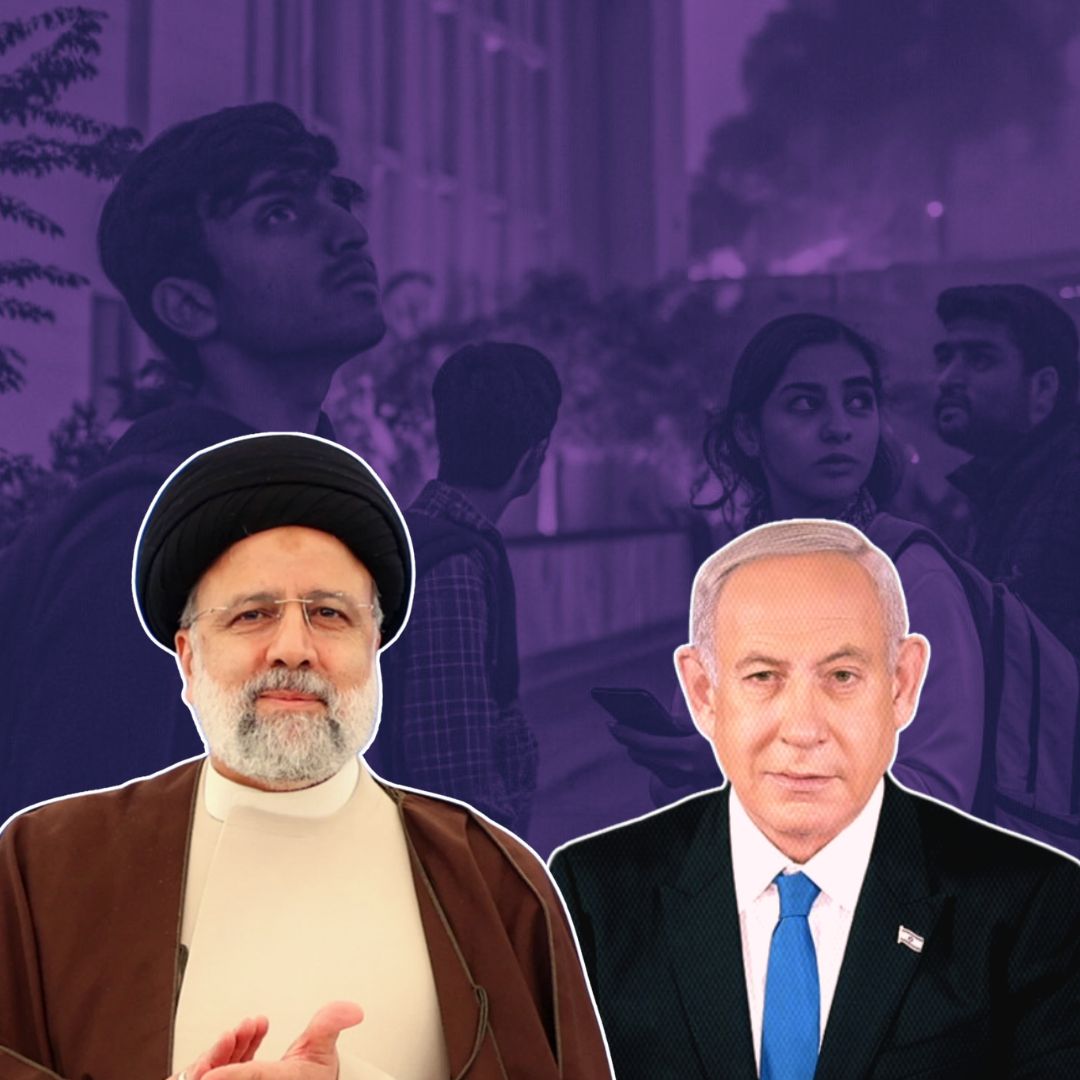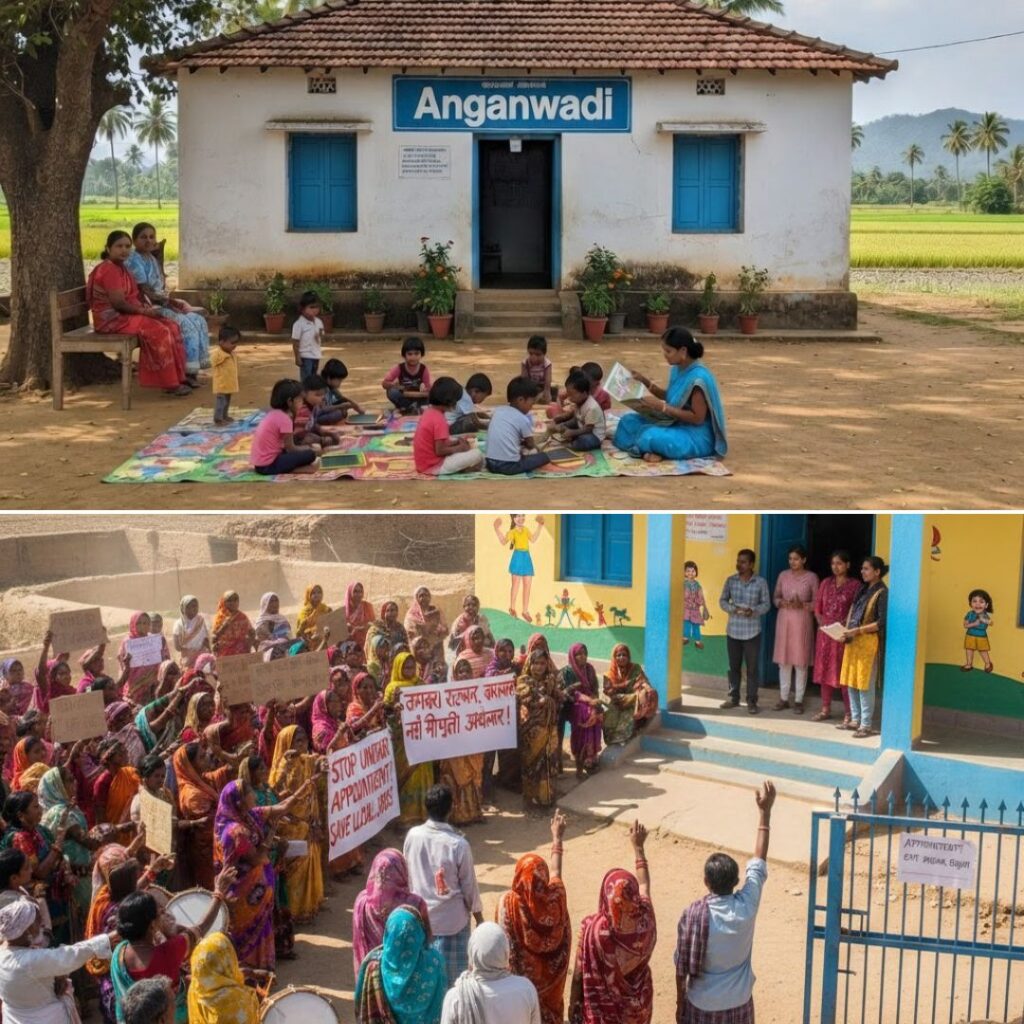Indian students studying in Tehran are increasingly alarmed and have urged the Indian government to arrange their evacuation following a series of Israeli airstrikes on Iranian military and nuclear facilities near the capital. The strikes, which occurred on June 13, have escalated tensions between Iran and Israel, causing explosions and tremors felt across Tehran.
Approximately 1,500 Kashmiri students, along with others from states such as Uttar Pradesh, are currently in Tehran, many of whom have reported disrupted communications and heightened anxiety over their safety.
The Jammu and Kashmir Students Association, along with political leaders including J&K Chief Minister Omar Abdullah, have formally appealed to India’s Ministry of External Affairs (MEA) to facilitate immediate evacuation. While the Indian Embassy in Tehran is actively collecting contact details and monitoring the situation, no official evacuation advisory has been issued yet, and Tehran’s airspace remains closed with flights suspended.
Growing Fear and Urgent Calls for Evacuation from Indian Students
The impact of the Israeli airstrikes has been deeply felt by Indian students residing in Tehran. Students like Tabiya Zahra, a second-year medical student from Kashmir, described the terrifying experience of explosions that shook their university hostels early in the morning.
Alisha Rizvi, another student from Uttar Pradesh, recounted how the blasts caused panic among students, many of whom struggled with limited internet connectivity and unclear guidance on safe locations. Despite university officials advising students to remain calm, the lack of clear evacuation plans or designated safe zones has left many feeling vulnerable.
The Jammu and Kashmir Students Association has formally requested the MEA to explore all possible evacuation routes, including sea evacuation via the Persian Gulf, land transit through neighbouring countries such as Turkey or the UAE, and special evacuation flights once airspace restrictions are eased.
Families in India have expressed growing concern, with many students making distress calls to their relatives, underscoring the urgent need for coordinated government action.
Background: Escalating Iran-Israel Conflict and Regional Implications
The recent Israeli airstrikes targeted critical Iranian infrastructure, including the Natanz nuclear enrichment facility, radar stations, and missile sites, marking a significant escalation in the long-standing Iran-Israel conflict. These strikes prompted retaliatory drone attacks by Iran on Israeli territory, raising fears of a broader military confrontation in the region.
The explosions caused visible black smoke across Tehran and triggered air raid sirens, intensifying the atmosphere of fear among residents and foreign nationals alike. Tehran’s Imam Khomeini International Airport remains closed, with all commercial flights suspended, complicating any immediate evacuation efforts.
Indian students’ universities and hostels are located near some of these strategic sites, increasing their exposure to potential risks. The international community is closely watching developments, with calls for restraint and diplomatic dialogue to prevent further escalation.
The Logical Indian’s Perspective
At The Logical Indian, we believe the safety and well-being of Indian citizens abroad, especially students caught in conflict zones, must be a paramount concern for the government. We urge the Ministry of External Affairs to act swiftly and compassionately, coordinating with Iranian and regional authorities to facilitate safe evacuation options.
This crisis underscores the importance of empathy, dialogue, and humanitarian concern in navigating geopolitical tensions. While diplomatic sensitivities are complex, protecting human lives should always take precedence. As we advocate for peace and coexistence, we invite our readers to reflect: How can India balance its diplomatic relations with urgent humanitarian responsibilities to ensure the safety of its citizens abroad? What steps can communities and governments take to foster solidarity and resilience in times of international crisis?












